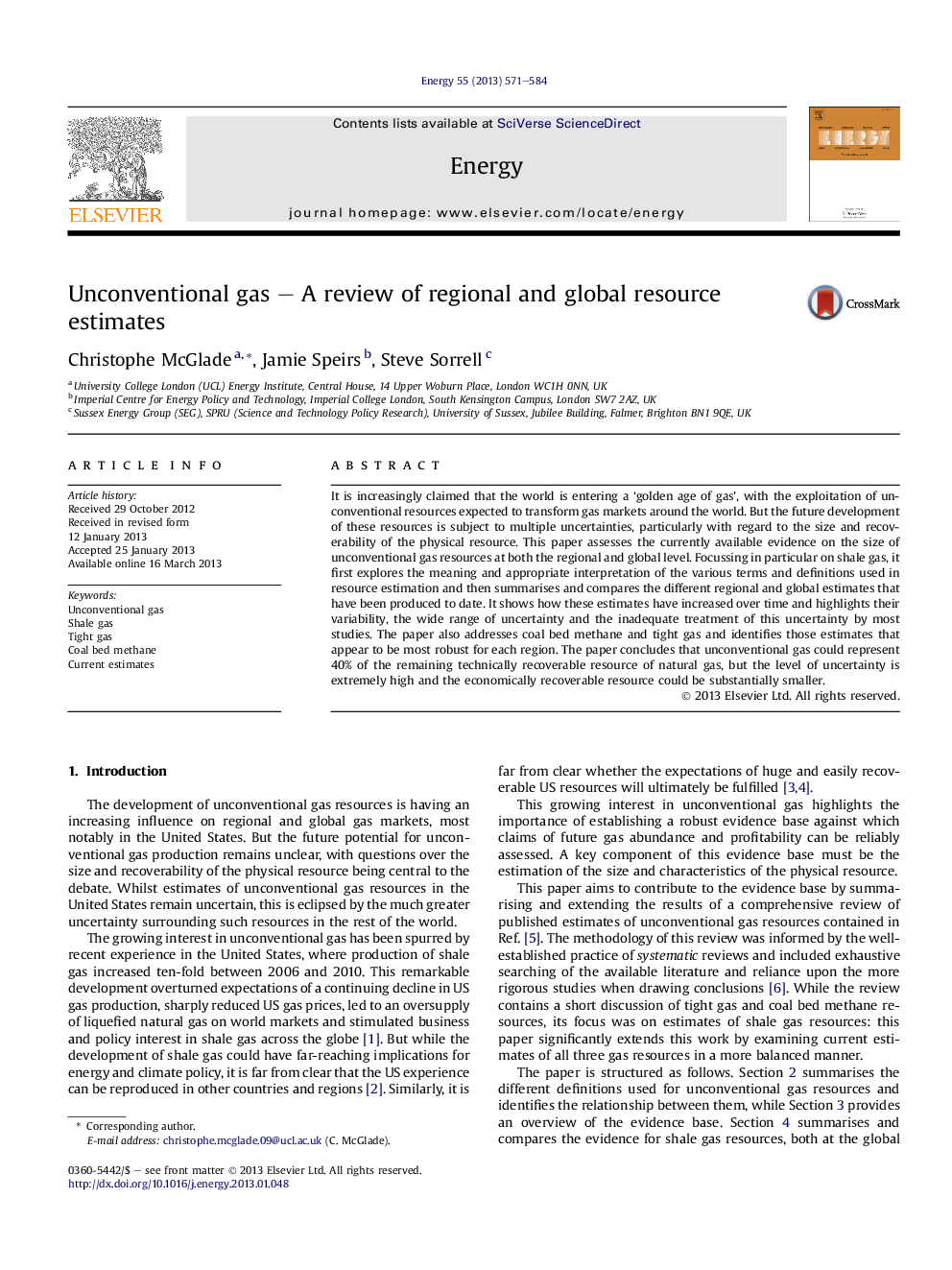| Article ID | Journal | Published Year | Pages | File Type |
|---|---|---|---|---|
| 1732994 | Energy | 2013 | 14 Pages |
It is increasingly claimed that the world is entering a ‘golden age of gas’, with the exploitation of unconventional resources expected to transform gas markets around the world. But the future development of these resources is subject to multiple uncertainties, particularly with regard to the size and recoverability of the physical resource. This paper assesses the currently available evidence on the size of unconventional gas resources at both the regional and global level. Focussing in particular on shale gas, it first explores the meaning and appropriate interpretation of the various terms and definitions used in resource estimation and then summarises and compares the different regional and global estimates that have been produced to date. It shows how these estimates have increased over time and highlights their variability, the wide range of uncertainty and the inadequate treatment of this uncertainty by most studies. The paper also addresses coal bed methane and tight gas and identifies those estimates that appear to be most robust for each region. The paper concludes that unconventional gas could represent 40% of the remaining technically recoverable resource of natural gas, but the level of uncertainty is extremely high and the economically recoverable resource could be substantially smaller.
► We examine all currently available evidence providing estimates of shale gas, coal bed methane and tight gas. ► Current estimates of global, North American, European and Chinese shale gas resource estimates are discussed in detail. ► While evidence on shale gas resources remains limited, evidence on tight gas and coal bed methane is much worse. ► Global estimates of technically recoverable resources are 39 Tcm coal bed methane, 54 Tcm tight gas, and 193 Tcm shale gas. ► 40% of remaining recoverable resources of natural gas could be unconventional gas but uncertainty remains extremely high.
